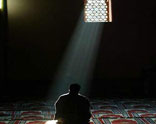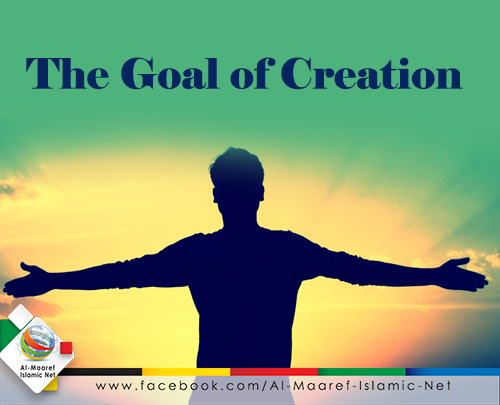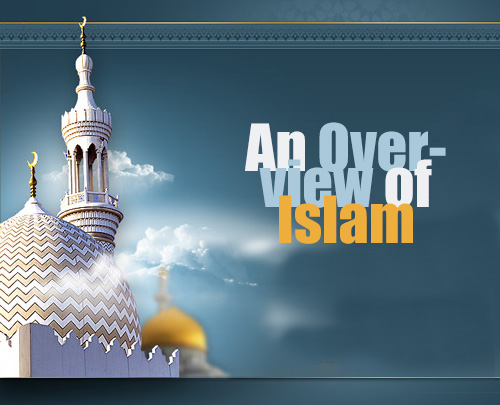(ESTABLISH THE PRAYER)
• Why Allah ordered us to pray?
• What is the reality of prayer?
• Who are those who really establish prayer?
Having talked about answering the call of Allah for us to purify since Allah loves those who repent and purify, it is time now to know how to answer the second call of Allah by performing the greatest obligation: prayer. Prayer is the means to elevate to Allah and it is the oblation of every pious believer. We shall begin by knowing the reason after the call of Allah for us to pray.
Why Allah ordered us to pray?
Ali Bin Abi Taleb (peace be upon him), the Commander of Faithful, says, “Allah created all his creatures although He does not need their obedience because neither their sins nor their obedience does affect him.”1
Allah knows that we are taken away by the problems and pleasures of life and we may forget ourselves. Moreover, the pleasures of life may take away our lives and the monies, fun and vanity may divert us from the purpose of our creation. Thus, we forget our creator and get lost. We only taste the material things related to life and fail to remember the pleasures of worship and knowing Allah.
Almighty does not aim at depriving us these spiritual pleasures of life but wants us to taste the sweetness of knowing and being near to Him. He wants us to pick us out of the valleys of negligence and from the fields of playing around into the safety of recalling, worshiping and getting closer to him.
He knows that we need a firm bond between Him and us and we need something that calms our souls down. He knows that we need something that cleanses our spirits and hearts from the traces of sins and incautiousness. Therefore, He granted us a constant means of keeping such a firm bond: prayer.
Allah says, ﴾… And establish regular prayer for celebrating My praise.﴿2
So, prayer's purpose is to remember Allah, the generous who has created us and who keeps sending us his graces and who maintains taking care of us since He deserves that we mention Him and keep Him on our minds. We do need the prayer while He does not. Besides, the grace of permitting us to pray for Him is so great. Imam Al Sajjad says, “The most important of Your graces is to keep our tongues mentioning You.”3
What is the reality of prayer?
In the previous verse, prayer is considered to establish the celebration in praising Allah through which man and Allah are connected. Prayer is among the most important actions of man that keeps us mentioning Allah, strengthens the relationship of man with Allah, alarms man and guides him to the right path and prevents him from getting astray. It is an alarm that wakes up from going in too deep in the pleasures of life and tells us that there is a god, heaven, hell and responsibilities other than work, sleep, money and having fun that are more important. Prayer reminds us of the real goals of existence so that we do not forget the same as we become busy in many other issues. By establishing prayer, we remember Allah; we remember our goals; we remember our hereafter.
Prayer is the practical exercise of the pillars of religion; it is a practical exercise of monotheism, for it is a practical evidence from man to monotheism and that Allah is qualified to be worshiped. We actually mention the same in the prayer itself: “Thee do we worship, and Thine aid we seek,” and when testifying “I testify that there is only Allah the one God,” and when praying we acknowledge the prophecy of Prophet Mohamad as we say, “And I testify that Mohamad is His servant and messenger.”
When we further practice prayer as the Apostle of Allah (peace be upon him) has taught us we are actually practicing the belief in the hereafter, heaven and hell. So, we pray with all our hearts ratifying “Master of the Day of Judgment”.
This is why Imam Al Baker said, “Man shall be first accountable for prayers. If it is accepted, all other things shall be accepted as well.”4
Who are those who really establish prayer?
This is a question that imposes itself. Is he who says Allah Akbar, reads the verses of the prayer, who kneels, who prostrates and who testifies considered among those who establish the prayer? Does a prayer has certain specifications before Allah?
O My Dear Believer! Your first response would be negative. So, who are those who steadfast for prayer?
The answer is: Allah Almighty first wanted prayer to be a means of mentioning Allah. Any prayer does not perform its goal if it is associated with incautiousness and forgetting Allah. As a result, it is not a prayer. Allah says, ﴾So woe to the worshipers, who are neglectful of their prayers.”﴿5
Allah denotes their neglectfulness and incautiousness as being a terrible disadvantage. He also says, ﴾Approach not prayer with a mind befogged, until ye can understand all that ye say.﴿6
This is a warning for our negligence to what we say and do.
To be real prayer as Allah sees us, we must be humble and feel the power of words and the power of our addressee, ﴾Those who humble themselves in their prayer.﴿7
The face of Imam Ali (peace be upon him) used to change when he wanted to purify due to his fear of Allah.8
When the time of a prayer come, he used to shiver and quiver and when he was asked what was with him he used to say, “The time has come for a trust that was offered to and refused by all heavens and earths because they feared the same.”9
On the other hand, real prayer must impact the life of a human being. A person who performs prayer must be a good person, who behaves well, since prayer has an aspired goal: making a good person, for Allah says, ﴾… and establish regular Prayer: for Prayer restrains from shameful and unjust deeds …﴿10
A person who swears is not among those who establish prayer; a person who violates the rights of people in their money, honor, and reputation is not a person who establishes prayer. This is why the Apostle of Allah (peace be upon him) said, “He whose prayer do not restrain him from shameful and unjust deeds is not a person who establishes prayers.”
Performing Prayer
1- After minor ablution (Wuduo) or major ablution (Ghusul), stand upright and face Al Kibla.
2- Say Allah is Greatest (Allah Akbar) once, i.e. Takbirat Al Ihram.
3- Read Sura Al Fatiha (Openning)
4- Read another small Sura (such as Al Ikhlas [Al Tawhid])
5- Say Allah Akbar once, then bow with your hands on your knees (first Rakaa) and say, “Sobhan Rabi Al Azim Wa Bihamdeh.”
6- Stand upright once again and Say Allah Akbar once and then go down to prostrate.
7- Perform prostration on your seven organs of prostration which are: your forehead, palms, knees, and thumb toes. After your forehead rests on Sajda (place of prostration), say, “Sobhan Rabi Al Aala Wa Bihamdeh.”
8- Say Allah Akbar once as you bring your head up and sit straight then say Allah Akbar once and do as you did in the first prostration.
9- Stand up for performing the second Rakaa and do the same as you did in the first Rakaa except for the first Allah Akbar. Having finished the second prostration (Sajda) and you are praying the Morning Prayer, say, “Ashhad Ann La Ilah Illa Allah Wahdahou La Sharik Lah Wa Ashhad Ann Mohamad Abduhu Wa Rasuluh, Alahom Sali Aala Mohamad Wa Al Mohamad [I testify that Allah is the one God who has no partner and that Mohamad is his servant and messenger; Prayer be upon Mohamad and his desendants].” Then say, “Assalam Alaik Aiyouha Al Nabi Wa Rahmat Allah Wa Barakatoh; Assalam Alina Wa Aala Ibad Allah Al Salihin; Assalam Alikom Wa Rahmat Allah Wa Barakatoh [Peace, mercy and graces of Allah be upon You, O ye the Apostle of Allah; Peace, mercy and graces of Allah be upon us and upon the good worshipers of Allah; Peace, mercy and graces of Allah be upon you].”
Warning
1- The Sajda must be pure and must not be a food or clothing related item.
2- Do not speak or turn around during the prayer.
3- The first Allah Akbar (Takbirat Al Ihram) must be said for one time. Should you say it again, both are void and annulled.
4- If you are praying a prayer that consists of three of four Rakaa, and after the second Sajda of the second bow, you only say the first part of Nine above (testimony), then you stand up to continue with residue of Rakaas. You may opt to read Soura Al Fatiha only or say “Sobhan Allah Wa Al Hamdu Lilah Wa La Illah Illa Allah Wa Allah Akbar [Glory be to Allah, and Gratitude be to Allah, and there is no god but Allah and Allah is great]” one or three times. When you finish the remaining number of Rakaas you do as mentioned in Nine hereinabove. May Allah accept your deeds and ours.
* "Beginning of the Path", "Lesson five". By: Islamic Cultural Knowledge Organization. Knowledge Center for Islamic Studies and Researches.
1- Bihar Al-Anwar (Seas of Light), v: 64, p: 342.
2- (Ta-Ha [Mystic letters Ta-Ha] 020.014).
3- As-Sahifa Al-Sijadiah, p: 418.
4- Al Kafi, Volume 3, Page 268.
5- (Al-Maun [Small Kindnesses, Almsgiving, Have you Seen]) 107.004 & 005.
6- (An-Nisa [Women] 004.043).
7- (Al-Mumenoon [The Believers] 023.002).
8- Bihar Al Anwar, Volume 67, Page 400.
9- Al Haka’ik, page 222.
10- (Al-Ankaboot [The Spider] 029.045).




















